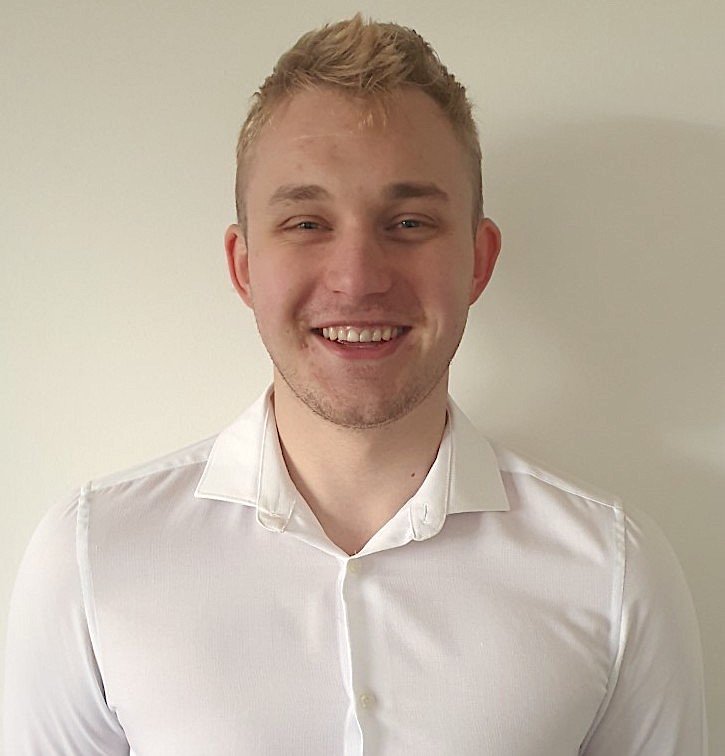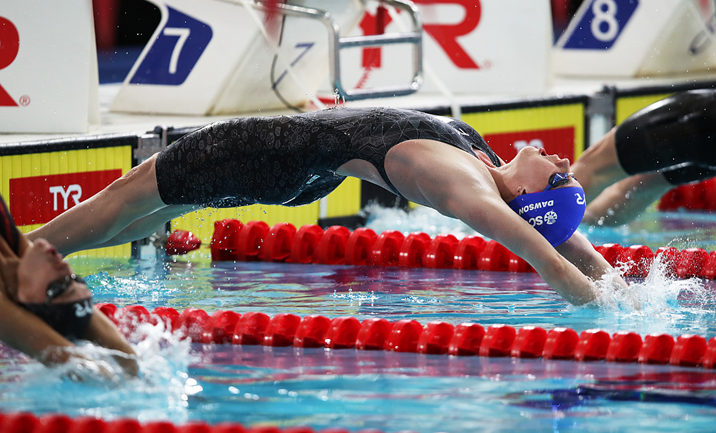LOCKDOWN may be locking Scots out of swimming pools and causing some real problems, but it shows little sign of limiting ambition among swimmers whose 2020 Olympic and Paralympic ambitions have been dashed, writes RYAN BROWN.
On 23 March the UK was placed under lockdown and seven weeks later the country may appear to be growing accustomed to restrictions on outside exercise time. However, many are struggling physically and mentally and hopes of a return to normality are being felt by those used to regular sporting activity.
All clubs and sporting teams have been shut down and any planned events or competitions have been postponed or cancelled including the Olympics and Paralympics. With the full length of the lockdown still not fully known, the future of many of Scotland’s smaller teams and sporting clubs may be in jeopardy. Swimming clubs, like their counterparts from other sports, are unable to get their members in to training and it is unknown when they will be allowed to recommence their training. To keep teams together and maintain moral, teams have had to move to online based training and coaching methods.
There are different thoughts on how Scotland’s number of swimmers will be affected due to Covid-19, and research among athletes and coaches suggest that it will affect teams differently depending on variable factors such as age and ability level of athletes.
Chris Jones, the head coach at the University of Edinburgh Swim Team, a program that has mainly elite, senior athletes, told OSS that that they aren’t seriously worried that a long absence from training will result in the loss of a large number of their athletes. Jones believes that, on the whole, Scotland’s senior swimmers will get through this by sticking to what he terms the 3 C’s – Commitment, Communication and Connection – and keeping their sights on key targets such as the Tokyo 2021 Olympics and the 2022 Commonwealth Games in Birmingham.

Kathleen Dawson is not allowing the coronavirus to dampen her spirits as she continues to plan for the Tokyo Olympics, now in 2021
On the other hand, Gordon Glasgow, the head coach at Swim West Lothian, a club with around 50 members who are predominantly age group and school aged athletes, thinks that when clubs are able to start back training, there may be up to around a 40% decrease in the number of junior swimmers in Scotland. He thinks that the decrease will mainly come from swimmers who were uncertain of their future in swimming before the current situation happened, however it may affect everyone differently and a number of athletes may use the current situation to stop swimming and start something new. He believes that participation will definitely rise back up after everything has returned to normal, however it may take a while.
Alan Lynn, Scotland’s National Head Coach, told us that current membership numbers were remaining level, and he thinks that everyone in the sport understands how exceptional the circumstances are, and so athletes will not want the coronavirus to cause the end of their swimming career. He remains hopeful that once we return from lockdown and start to get to grips with new measures, we will see swimmers returning to the pool and continuing to be involved and perform the sport that they enjoy and love.
Gordon Glasgow told me about how the West Lothian club, like most swimming clubs in Scotland he thinks, have accepted that they will be unable to get back into the pool for a while, and so are adapting to provide swimmers with a weekly program that includes land-based workouts, walks and yoga. This is similar to plans being used by the swimmers at Edinburgh University. Chris Jones and associate head coach Mathew Trodden are putting out weekly ‘training’ plans, and have weekly chats with each of their athletes to check on how they are doing both mentally and physically. Jones believes they are extremely fortunate to have massive amounts of support from practitioners at the University of Edinburgh able to create strength, core, yoga, Pilates, physio sessions for the athletes which allows them to continue their training and remaining committed and focused.
Head Coach at City of Glasgow Swim Team, Ian Wright, told us that a lot of what has been provided online for swimmers across the country, either from Scottish Swimming or swim teams, has mostly been the same repeated stuff, and that at Glasgow they have been trying not to overwhelm their athletes by being too hands on until they have become accustomed to the lockdown situation. Wright also believes that once the current situation has passed kids all over the country will be extremely eager to get back into swimming, and other sports, to be able to participate with their friends again.
Lockdown impact on Olympics and Paralympics results

Scott Quin is thankful to Scottish Swimming for keeping him on track for more GB recognition next year
2020 was meant to be a massive sporting year with the Olympics and Paralympics taking place late this summer in Tokyo, however, these have been postponed to the summer of 2021. With most of the world being in some sort of lockdown, most of the world’s swimmers are in the same position as Scotland’s athletes being unable to train in the pool and having to completely change to land work. However, it seems that there may be options that some of the world’s best swimmers are using to their advantage.
Gordon Glasgow has been in talks with coaches around the world where many swimmers are managing to continue in the water with use of their own personal pools. World class British swimmers Adam Peaty and James Guy have even been posting on social media their adapted training in very large jacuzzis! Glasgow does think that the longer the lockdown continues the greater impact it will have on the Tokyo results.
However, two of Scotland’s highest-level athletes don’t feel the current situation will have a detrimental effect on their chances in Tokyo 2021. Para World Champion and Paralympic silver medalist Scott Quin and World Championship and Commonwealth Games finalist Kathleen Dawson both feel that by continuing to work hard out of the pool, and to keep planning towards the future for when they are able to get back into the water to train, that they won’t have any major disadvantages. Both are extremely motivated and committed to continue working towards their goals of performing their best at the games next summer.
Dawson and Quin are receiving amazing continued support from Scottish Swimming throughout the whole lockdown period, with multiple work-out sessions a week through the use of Zoom and weekly updates from Scottish Swimming on the current situation. Both are missing swimming hugely and definitely looking forward to being back in the pool training towards the 2021 Olympics and Paralympic Games.
Time will tell what the next stages of lockdown will bring, and what this means for when sport will be able to return to Scotland. However, from our brief bit of research across the club and elite landscape Scotland’s swimmers appear to be working hard to remain motivated and are looking forward to diving back into the water even in these difficult times.
About the author
 Ryan Brown is a 22-year-old Scottish and GB swimmer who has just completed his final year studying BSc (Hons) in Sport and Exercise Science. Currently based in Stirling, swimming with one of the High Performance squads, Ryan started swimming competitively aged 10. He has swum for Scottish and British teams, regularly featuring in the top 10 in Britain in a number of different events. Ryan won the British Championship title for the 200 butterfly in 2016 and competed at the European Junior Championships in Hungary that year.
Ryan Brown is a 22-year-old Scottish and GB swimmer who has just completed his final year studying BSc (Hons) in Sport and Exercise Science. Currently based in Stirling, swimming with one of the High Performance squads, Ryan started swimming competitively aged 10. He has swum for Scottish and British teams, regularly featuring in the top 10 in Britain in a number of different events. Ryan won the British Championship title for the 200 butterfly in 2016 and competed at the European Junior Championships in Hungary that year.
Ryan has always had a keen interest in sport and how to most effectively develop athletes while paying attention to both physical and mental health. Ryan has developed research into the mindset of athletes at all levels, what drives them and how they can make improvements and changes to ensure they enjoy their sport, and joined the OSS team as a Research Assistant in April, 2020.






Thought Piece from Charlie Raeburn for Reform Scotland